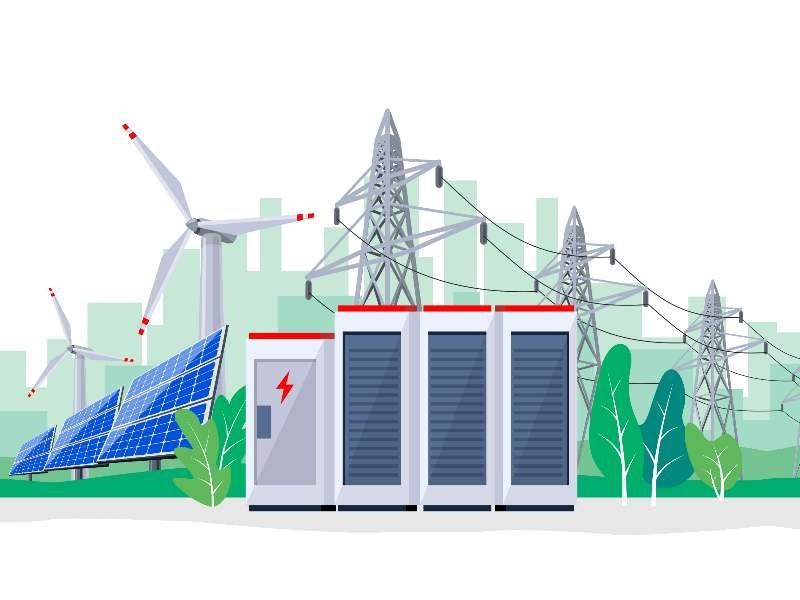The Biden-Harris Administration, through the U.S. Department of Energy (DOE), has announced nearly $350 million for emerging Long-Duration Energy Storage (LDES) demonstration projects capable of delivering electricity for 10 to 24 hours or longer to support a low-cost, reliable and carbon-free electric grid.
The LDES demonstrations program will be managed by DOE's Office of Clean Energy Demonstrations (OCED), and will fund nearly $350 million for up to 11 demonstration project.
Funded in part by President Biden's Bipartisan Infrastructure Law, this funding opportunity will advance new renewable energy technologies, enhance the capabilities of customers and communities to integrate grid storage more effectively, increase grid resilience, and expand America's global leadership in energy storage.
Together with the President's Inflation Reduction Act, which provided expanded clean energy tax credits for energy storage installation, this new investment will provide businesses the confidence they need to build and deploy innovative clean energy technologies critical for the country to achieve carbon-free electric grid by 2035 and a net-zero emissions economy by 2050.
"Advancing energy storage technologies is key to making energy generated from clean renewable resources, like wind and solar, available for 24/7 use, and is critical to achieving a decarbonized power grid and reaching President Biden's ambitious climate goals," said U.S. Secretary of Energy Jennifer M. Granholm.
"DOE is taking huge steps to lower the cost and increase the duration of energy storage technologies so that clean, reliable, affordable electricity is available whenever and wherever to everyone, especially Americans living in remote and underserved communities", she added.
As the U.S. moves towards a carbon-free electric grid that relies more on diverse renewable energy generation, the need for reliable LDES that can supply enough energy for long periods of time and during periods when energy generation is reduced or unavailable becomes more essential.
Today's energy storage technologies are not sufficiently scaled or affordable to support the broad use of renewable energy on the electrical grid, notes the DoE. Cheaper, longer duration energy storage can increase community involvement in local power systems, build resilience for communities, and minimize power grid disruptions, it adds.
The department has also set an internal goal of reducing the cost of grid-scale energy storage by 90 percent within the end of this decade.
DOE will fund up to 50 percent of the cost of each project to catalyze impactful LDES demonstrations and open enormous new possibilities for clean, baseload power. The program aims to fund projects that will overcome the technical and institutional barriers that exist for full-scale deployment of LDES systems by focusing on a range of different technology types for a diverse set of regions.
RELATED: US awards $2.8 billion towards battery manufacturing for EVs, energy storage
Read More

